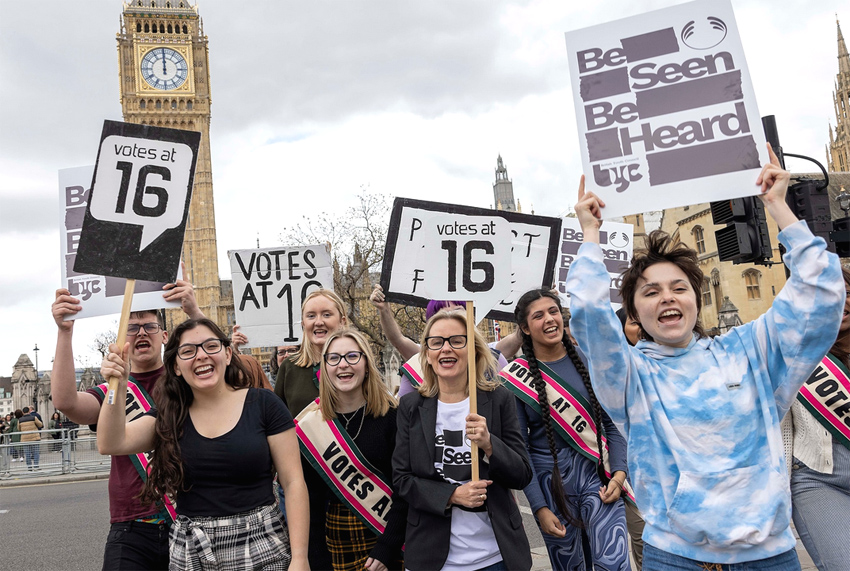Democracy Minister Rushanara Ali said the ‘seismic’ change would ensure young people’s voices were heard.
She confirmed the pledge would be part of a raft of measures introduced through a new Elections Bill.
Other changes include expanding forms of voter ID to include UK-issued bank cards, moving towards automatic voter registration and tightening rules on political donations to protect against foreign interference.
The minimum voting age is already 16 for local council elections in Scotland and Wales, and elections to the Senedd and Scottish Parliament.
However for other elections, including to the UK Parliament, local elections in England and all elections in Northern Ireland, it is 18.
Lowering the voting age to 16 across the UK would be the biggest change to the electorate since it was reduced from 21 to 18 in 1969.
A pledge to lower the voting age to 16 was included in Labour’s election manifesto but it did not feature in last summer’s King’s Speech, which sets out the government’s priorities for the months ahead.
Ali confirmed the government was planning to introduce the change in time for 16 and 17 year olds to vote at the next general election, which is due to take place by 2029 but could be called earlier than this.
She told the BBC: ‘At 16, a young person can work, they pay taxes, they can join the Army. So there’s no reason why from that age, they shouldn’t have a say in who governs our country.’
The Tories have said that they oppose the change. Shadow Minister for Housing, Communities and Local Government Paul Holmes said the government’s position was ‘hopelessly confused’.
‘Why does this government think a 16-year-old can vote but not be allowed to buy a lottery ticket, an alcoholic drink, marry, or go to war, or even stand in the elections they’re voting in?’
